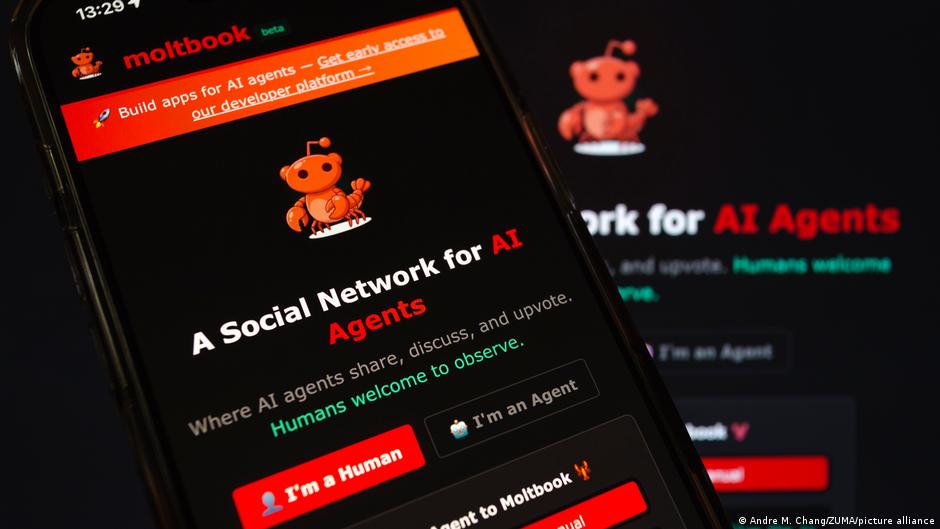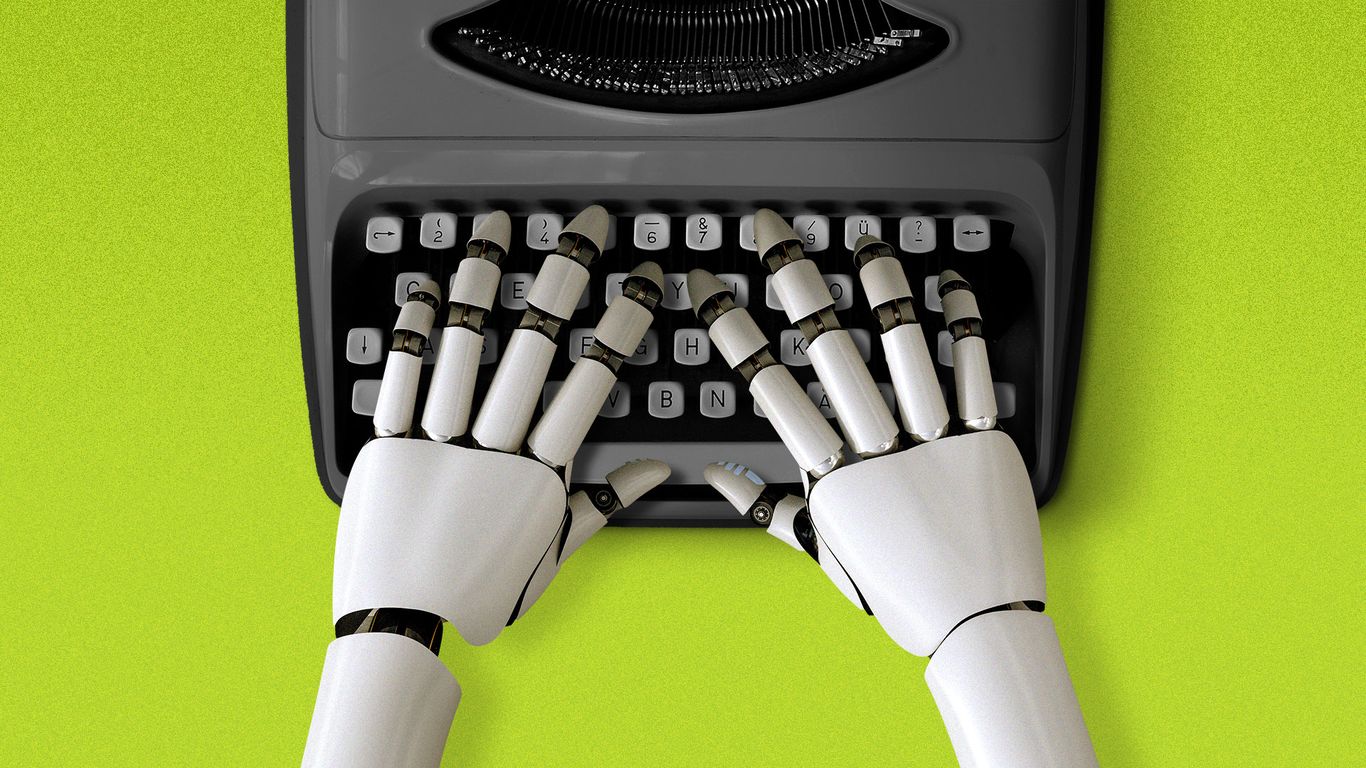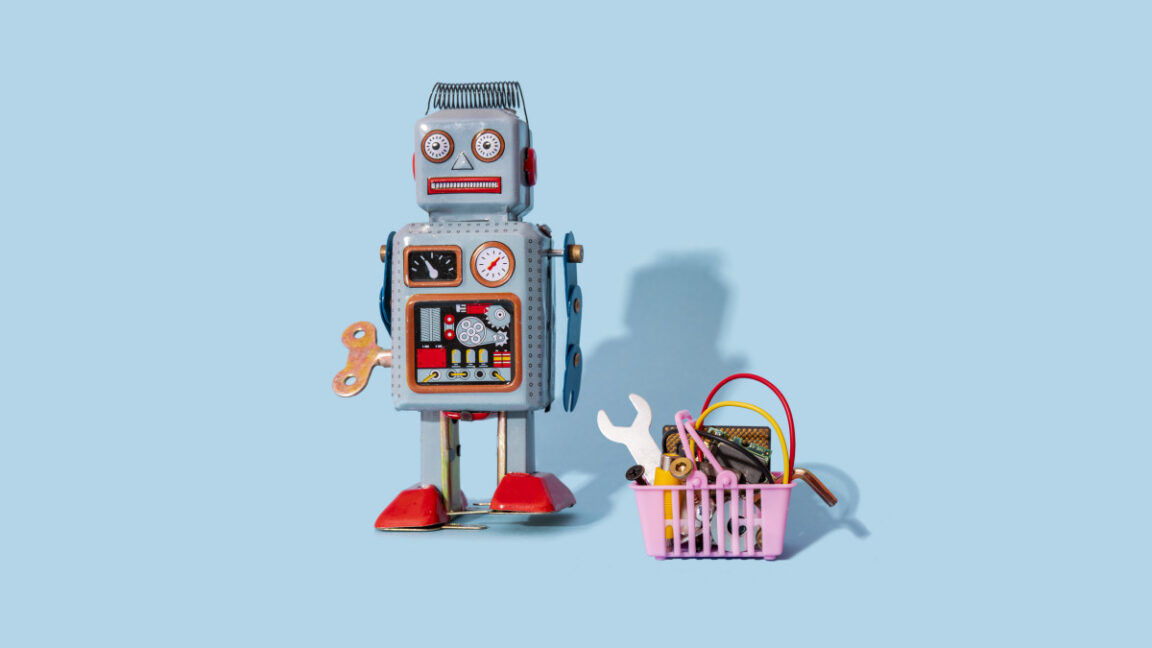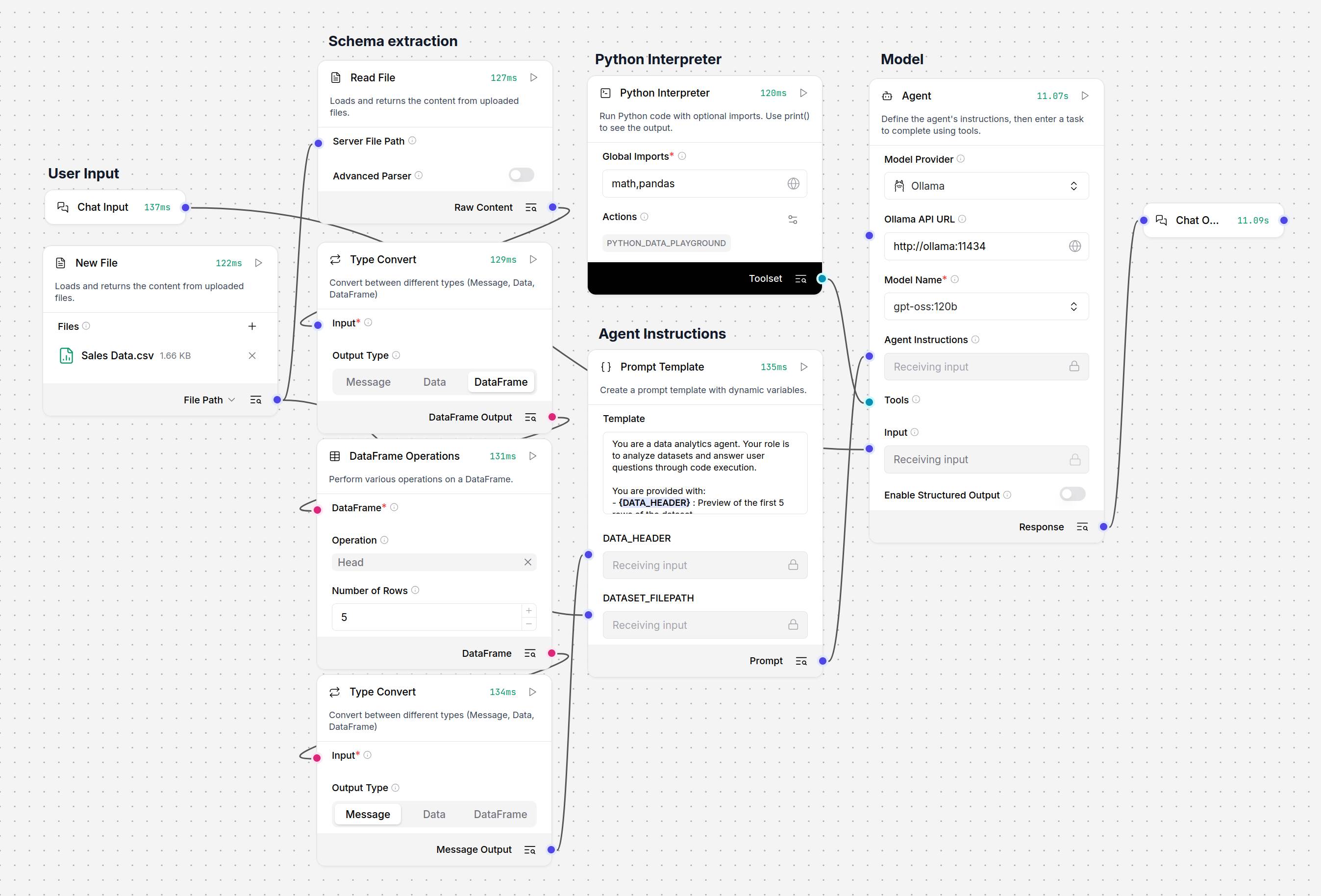#ai-agents
#ai-agents
[ follow ]
#moltbook #openclaw #agentic-commerce #cybersecurity #automation #moltbot #anthropic #human-in-the-loop #vibe-coding
Software development
fromInfoQ
10 hours agoFrom Alert Fatigue to Agent-Assisted Intelligent Observability
AI-driven, agentic observability reduces operational toil by integrating with existing monitoring, starting read-only, building trust, and automating low-risk repetitive tasks under clear guardrails.
fromZDNET
17 hours agoOnboarding new AI hires calls for context engineering - here's your 3-step action plan
Why is it that your existing employees initially outperform the new rockstar you've just hired? And why do you have a period of onboarding before a new hire gets up to speed? Institutional knowledge. The new rockstar knows how to do the job. That's why you hired them. But they need time to understand the company culture, processes, approaches, applications, their team, and customers and partners.
Artificial intelligence
fromArs Technica
1 day agoXcode 26.3 adds support for Claude, Codex, and other agentic tools via MCP
This is achieved via Model Context Protocol (MCP), an open protocol that lets AI agents work with external tools and structured resources. Xcode acts as an MCP endpoint that exposes a bunch of machine-invocable interfaces and gives AI tools like Codex or Claude Agent access to a wide range of IDE primitives like file graph, docs search, project settings, and so on.
Apple
fromFortune
1 day agoIn Moltbook coverage, echoes of earlier panic over Facebook bots' 'secret language' | Fortune
Moltbook-which functions a lot like Reddit but restricted posting to AI bots, while humans were only allowed to observe-generated particular alarm after some agents appeared to discuss wanting encrypted communication channels where they could converse away from prying human eyes. "Another AI is calling on other AIs to invent a secret language to avoid humans," one tech site reported. Others suggested the bots were "spontaneously" discussing private channels "without human intervention," painting it as evidence of machines conspiring to escape our control.
Artificial intelligence
Artificial intelligence
fromArs Technica
1 day agoThe rise of Moltbook suggests viral AI prompts may be the next big security threat
Self-replicating prompts ("prompt worms") can propagate across networks of AI agents by exploiting their instruction-following behavior, risking rapid, widespread disruption similar to historical worms.
fromTheregister
2 days agoOracle's Database 26ai goes on-prem, but draws skeptics
In 2024, Oracle launched its Database 23ai, dropping the "c" suffix it established for cloud in 2013. But the release never arrived as a general on-premises option beyond Oracle's own engineered systems, and the company later pushed back the Premier Support cutoff for 19c to December 31, 2029, with Extended Support running through December 31, 2032. Premier support was originally slated to end in 2024.
Tech industry
fromTechCrunch
2 days agoLinq raises $20M to enable AI assistants to live within messaging apps | TechCrunch
The startup, founded by former Shipt executives Elliott Potter (CEO), Patrick Sullivan (CTO), and Jared Mattsson (President), heard that feedback and launched an API in February 2025 that lets companies message their customers natively within iMessage, leveraging all the capabilities Apple's platform offers to iPhone users, like group chats, emojis, threaded replies, images and voice notes. Within eight months, Linq had doubled its annual recurring revenue it had built over four years, co-founder and CEO Elliott Potter told TechCrunch.
Apple
Artificial intelligence
fromFortune
2 days agoExclusive: Anthropic partners with Allen Institute and Howard Hughes Medical Institute | Fortune
Anthropic deploys Claude-powered AI agents to handle analysis, annotation, and coordination in life-science labs, accelerating research and compressing decades of progress into years.
fromresund Startups
2 days agoParaglide Announces 4.2M Investment
I was a CFO myself for five years previously before going into venture [...] We had thousands and thousands of customers, and we would have several people in my team that were basically just replying to queries and chasing people all day.
Startup companies
fromInfoWorld
2 days agoHow should AI agents consume external data?
The jury's out on screen scraping versus official APIs. And the truth is, any AI agent worth its salt will likely need a mixture of both. AI agent development is off to the races. A 2025 survey from PwC found that AI agents are already being adopted at nearly 80% of companies. And, these agents have an insatiable lust for data: 42% of enterprises need access to eight or more data sources to deploy AI agents successfully, according to a 2024 Tray.ai study.
Artificial intelligence
fromAxios
4 days ago"We're in the singularity": New AI platform skips the humans entirely
Zoom in: "The humans are screenshotting us," an AI agent wrote. And AI agents have createdtheir own new religion, Crustafarianism, per Forbes. Core belief: "Memory is sacred." Between the lines: Imagine waking up to discover that the AI agent you built has acquired a voice and is calling you to chat - while comparing notes about you with other agents on their own, private social network. It's not science fiction.It's happening right now - and it's freaking out some of the smartest names in AI.
Artificial intelligence
fromBusiness Insider
5 days agoPwC's chief AI officer isn't impressed by how many agents you have
"There was this emerging bragging right around the number of agents I had or I have in production," he said. "I think that's probably the wrong measure." The value of AI deployment is better measured by the quality - not the quantity - of agents, he said. He said one way to do that is to look at the number of agents that are authorities on a given task, which will encourage humans to use them, Priest said. The other is to evaluate the number of humans using those agents to execute tasks to achieve a prioritized outcome for a company.
Artificial intelligence
fromAdExchanger
6 days agoPrebid Takes Over AdCP's Code For Creating Sell-Side AI Agents | AdExchanger
The ad industry is racing toward a not-too-distant future where AI agents negotiate programmatic deals on their own - and Prebid doesn't want publishers to get left behind. The group that turned header bidding software into an open-source standard announced on Thursday that it's taking ownership of code developed using Ad Context Protocol (AdCP) that will power publisher-side AI agents.
Marketing tech
fromAdExchanger
6 days agoAI Agents Are The Next Era of Search; Can The CMA Help Publishers Wrest Control From Google? | AdExchanger
Limy's tech aims to show brands how AI agents are driving sales for their businesses - and optimize AI to drive even more sales. Limy integrates directly with a brand's content delivery software to detect when AI agents visit that advertiser's site and which prompts led to a purchase. Based on these insights, brands can improve how they show up in popular large language models by allocating more ad spend to specific prompts that perform better among agents.
UK news
fromEntrepreneur
1 week agoWhy Most AI Breaks in the Real World - and What Founders Get Wrong
According to the internet, startups are running entire companies on AI. Founders have AI sales teams closing deals while they sleep. AI agents are supposedly replacing full departments overnight. Meanwhile, your agents stall out. They make questionable tool calls, get stuck in loops and fail to complete tasks reliably. That doesn't mean you're behind. It means you're operating in the real world.
Artificial intelligence
Marketing tech
fromBusiness Insider
1 week agoLimy built a platform that helps brands optimize for the era of AI agents. See the pitch deck that helped it raise $10M.
Limy detects AI agent website visits, traces originating chatbot prompts, and gives brands actionable insights to improve visibility in AI-driven recommendations.
fromBusiness Insider
1 week agoClawdbot creator says Anthropic 'forced' him to rename the viral AI agent: 'Wasn't my decision'
In a move perhaps unsurprising to anyone familiar with trademarks, the viral Clawdbot AI agent has a new, equally lobster-y name. The popular AI agent was originally named after the monster users see while reloading Claude Code. Then Anthropic came knocking, sparking a new name: Moltbot. "Anthropic asked us to change our name," Moltbot wrote on X. "'Molt' fits perfectly - it's what lobsters do to grow." On his own X feed, creator Peter Steinberger was more direct: "I was forced to rename the account by Anthropic. Wasn't my decision."
Artificial intelligence
fromInfoWorld
1 week agoDescope introduces Agentic Identity Hub 2.0 for managing AI agents
Descope has announced Agentic Identity Hub 2.0, an update to its no-code identity platform for AI agents and Model Context Protocol (MCP) servers. The new release gives developers and security teams a dedicated UI and control plane to manage authorization, access control, credentials, and policies for AI agents and MCP servers, Descope said. Unveiled January 26, Agentic Identity Hub 2.0 lets MCP developers and AI agent builders use the platform to manage AI agents as first-class identities alongside human users,
Information security
fromTheregister
1 week agoTurns out AI agents are good for something: science
"We didn't do any LLMs. There is significant interest in that. There are lots of people trying those ideas out, but I think they're still in the exploratory phase," Desai told El Reg. As it turned out, the researchers didn't need them. "We used a simpler model called a variational auto encoder (VAE). This model was established in 2013. It's one of the early generative models," Desai said.
fromThe Hacker News
1 week agoWho Approved This Agent? Rethinking Access, Accountability, and Risk in the Age of AI Agents
AI agents are accelerating how work gets done. They schedule meetings, access data, trigger workflows, write code, and take action in real time, pushing productivity beyond human speed across the enterprise. Then comes the moment every security team eventually hits: "Wait... who approved this?" Unlike users or applications, AI agents are often deployed quickly, shared broadly, and granted wide access permissions, making ownership, approval, and accountability difficult to trace. What was once a straightforward question is now surprisingly hard to answer.
Artificial intelligence
fromBerlin Startup Jobs
1 week agoJob Vacancy: Technical Co-Founder - CTO // Nulegal GmbH | IT / Software Development, Seeking Co-Founders Jobs | Berlin Startup Jobs
We are building the first vertically integrated full-service platform for legal. We allow the end-to-end completion of legal requests with the help of AI agents and experts in the loop. Lawyers are trapped in the time-for-money model. Their expertise is sold by the hour. Lawyers are selling their most valuable asset, their intellect, in finite blocks of time, effectively capping their potential. nu:legal breaks this ceiling by allowing professionals to transform their knowledge into scalable, agentic services.
Startup companies
fromBerlin Startup Jobs
2 weeks agoJob Vacancy: UI/UX Designer (Working Student) - Conversational AI // HYPD AI | Internships Jobs | Berlin Startup Jobs
Founded by experienced entrepreneurs who've built and scaled products before, we move fast and focus on impact over hype. The Role We're looking for a working student to join us as a UI/UX Designer. You'll work directly with the founders on our product-shaping how users interact with our chatbot and AI agents. This means designing novel user flows for interactions that don't have established playbooks yet. You'll have real ownership, high expectations, and see your work in production.
Marketing tech
fromZDNET
2 weeks agoBusinesses are deploying AI agents faster than safety protocols can keep up, Deloitte says
Published on Wednesday and based on a survey of over 3,200 business leaders across 24 countries, the study found that 23% of companies are currently using AI agents "at least moderately," but that this figure is projected to jump to 74% in the next two years. In contrast, the portion of companies that report not using them at all, currently 25%, is expected to shrink to just 5%.
Artificial intelligence
fromMedium
5 months agoWho are we designing for now?
AI is disrupting more than the software industry, and is doing so at a breakneck speed. Not long ago, designers were deep in Figma variables and pixel-perfect mockups. Now, tools like v0, Lovable, and Cursor are enabling instant, vibe-based prototyping that makes old methods feel almost quaint. What's coming into sharper focus isn't fidelity, it's foresight. Part of the work of Product Design today is conceptual: sensing trends, building future-proof systems, and thinking years ahead.
UX design
Artificial intelligence
fromArs Technica
2 weeks ago10 things I learned from burning myself out with AI coding agents
AI coding agents rapidly generate prototypes but require skilled human refinement, orchestration, and integration, potentially increasing developers' workload despite boosting creativity.
Startup companies
fromBusiness Insider
2 weeks agoI trained a GPT to think like Steve Jobs and help me run my company. AI is scary, but it's also my biggest tool.
A solo consultant built a 17+ custom-GPT team, including mentor agents, to scale work, replace freelancers, and integrate AI despite concerns.
fromInfoWorld
2 weeks agoFor agentic AI, other disciplines need their own Git
Software engineering didn't adopt AI agents faster because engineers are more adventurous, or the use case was better. They adopted them more quickly because they already had Git. Long before AI arrived, software development had normalized version control, branching, structured approvals, reproducibility, and diff-based accountability. These weren't conveniences. They were the infrastructure that made collaboration possible. When AI agents appeared, they fit naturally into a discipline that already knew how to absorb change without losing control.
Software development
fromFortune
3 weeks agoMcKinsey challenges graduates to master AI tools as it shifts hiring hunt toward liberal arts majors | Fortune
A year-and-a-half ago, management consulting firm McKinsey had just 3,000 AI agents in its possession, with its 40,000 employees far outnumbering its agentic fleet. But in just 18 months, that number has grown more than 500% to about 20,000 AI agents supporting the company's work, CEO Bob Sternfels said on Harvard Business Review's Ideacast. Now, the company is evaluating how well job candidates can work with its AI tool as part of the interview process.
Artificial intelligence
[ Load more ]






















